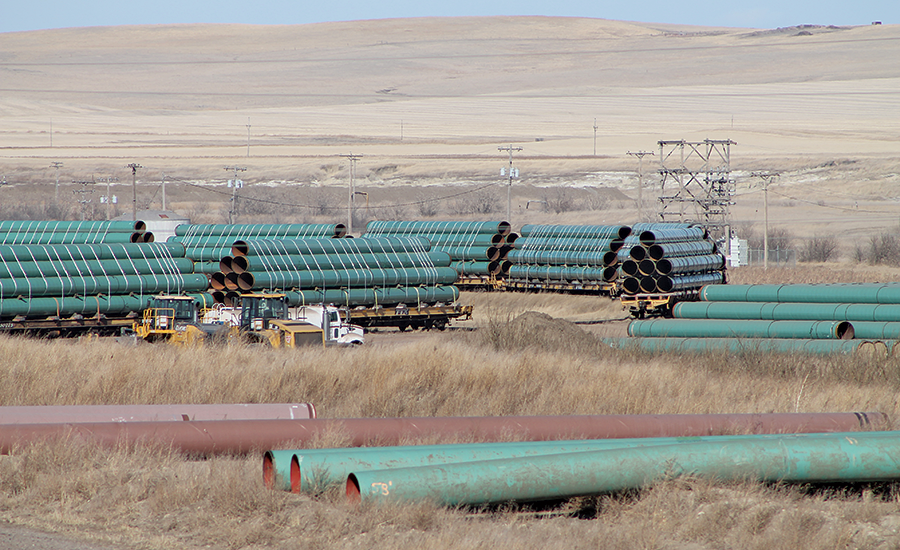Royal Dutch Shell has lost $5 billion so far in 2015, TransCanada Corp. is staring at a $2-billion write-off following the U.S. rejection of its Keystone XL pipeline, and Baker Hughes said it took a 43% hit to earnings compared to last year, a measurement almost identical to the decline of North American oil-rig drilling over the same time. For construction contractors, that means much pipeline, storage-terminal and refinery work will be delayed or canceled, says Houston-based oil-and-gas contractor Quanta Services.
|
Related Link:
Global Sourcebook PDF |
Because petroleum construction projects often are pressured by hectic time-lines to capitalize on upward trends in oil prices, producers are pulling the plug to buffer losses suffered from the crude price decline, which started in 2014. Shell recently reported it was writing off $2 billion it had spent on the development and construction of the Carmon Creek, Alberta, crude production center and canceling the project. Some analysts say, however, that similar maneuvers to abandon production and distribution projects could be shortsighted.
Quanta Services agreed that customers will gain an advantage in the marketplace when crude prices recover if the customers continue to build. “For the most part, industry participants with this view have a long-term perspective regarding their needs and are less influenced by short-term commodity fluctuations, ” says Kip Rupp, investor relations, Quanta Services. “There are a lot of bottlenecks out there, so we’re seeing customers continue to build because they want to move product more freely.”
Cancellations, however, remain a widespread sore spot for contractors. Earlier this year, when a Bank of America analyst asked Jacobs Engineering executives to name clients who had canceled contracts on the company’s oil-and-gas backlog, CEO Noel Watson answered, “We’re out of the cancellation and disclosure mode. We don’t want to talk about it anymore.”
In Europe, demand for petroleum products has declined 15% since 2008, says Total SA, which recently converted a petrol refinery to process renewable diesel fuel. The shale oil-and-gas revolution in the U.S., coupled with heavier competition from Asia and the Middle East, have forced Europe to operate at below capacity. “The Arabian Gulf has dramatically increased its refining capacity, so [Gulf Cooperation Council] countries have large incentive to process crude themselves, instead of selling it to EU refiners [such as] Statoil and Total,” says Evan Vokes, a former TransCanada Corp. materials engineer and now an independent pipeline development and safety consultant.
TransCanada has had dreams of reaching those starved and elusive EU refining markets for years. The unbuilt, 790-mile pipeline—from Hardisty, Alberta, to Steele City, Neb.—was meant to connect with other segments of the pipeline and, eventually, to coastal refineries and waterways, easing the way for international transport. Market analysts say the TransCanada Pipeline project now will focus on winning approval for its planned $12-billion Energy East Pipeline project. The line will convert to crude-oil service a portion of natural-gas pipeline capacity in 1,864 miles of existing mainline and add 870 miles of new pipeline. Energy East will have a capacity of 1.1 million barrels per day and is anticipated to be in service by late 2017 for deliveries in the strategic ports of Quebec and, by 2018, for deliveries to New Brunswick. From there, product can be put on ships bound for Rotterdam and other EU refining destinations.
Projects in the EU might be focused on security and safety, Jacobs said, as the European Commission takes more steps to increase and stabilize oil supplies. A budget of 5.35 billion euros has been appointed by the commission to help projects of mutual benefit to EU states to get implemented faster and make them more attractive to investors, a November commission energy report said.



Post a comment to this article
Report Abusive Comment